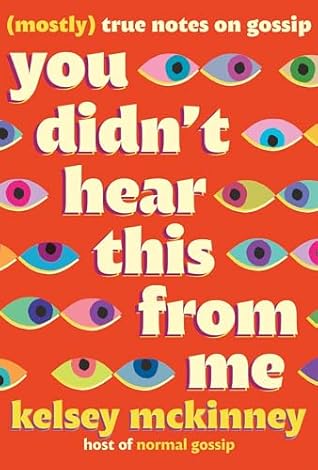More on this book
Community
Kindle Notes & Highlights
Read between
April 16 - April 23, 2025
The people who are afraid of the Gossip Trap (or Cancel Culture, Woke Mobs, the Media, or whatever you want to call the kind of social pressure that can create change) are the ones who have reason to be: they have outsized power in our society, and they want to hold on to it.
In the beginning, I thought that I wanted to write this book because I wanted people to think critically and carefully about gossip: about how we demonize and vilify it, about how we demean it as “women’s talk” and package it as dangerous. And that’s still important to me, but I am no longer certain that truth is a concept we are capable of holding between our hands, and I know that gossiping—be it for fun or for information sharing—is at its very core all about truth.
But that is the truth about gossip: We want to separate ourselves from it at the same time we want to drown in it. We want the truth, all of it, not told slant, until suddenly we don’t.
ChatGPT also seems to believe that “gossip” is synonymous with women and the gay community.
“Gossip may be the beginning of moral inquiry, the low end of the platonic ladder which leads to self-understanding. We are desperate for information about how other people live because we want to know how to live ourselves, yet we are taught to see this desire as an illegitimate form of prying,”
creating a narrative out of situations we find confusing is a fundamental part of being a person.
But wonder, seeking, and imagination are inherently human traits. They cannot be programmed.
“The problem with justice… is that it costs a lot… pursuing the lawsuit, costs aside, would be fruitless.”
You cannot both expect to be served with libel papers at any moment and believe that the gossiping you do causes no harm.
In The Conspiracy Theory Handbook, the psychologists Stephan Lewandowsky and John Cook argued that there are seven traits of conspiratorial thinking. They even created an easy-to-remember acronym: CONSPIR. A conspiracy theory is contradictory (C) because conspiracy theorists can simultaneously believe two things in direct opposition to each other. To a conspiracy theorist, Princess Diana could have either faked her death or been murdered. The belief system must also contain overriding (O) suspicion: the official account must always be wrong, and anything that does not fit into the
...more
“Truth and fact-checking travel along the same paths that conspiracies do. But the truth is often complicated, shaded, and demanding, and there’s no denying that it often lacks the powerful, emotional, gut-level appeal of a conspiracy,”
“Kiss-and-tell books always make me uneasy. Written, invariably, After the Fall, their motives are usually spite or greed or self-justification. One feels squeamish enough at being a Peeping Tom, but peeping through a distorting lens—that’s not sporting.”


